
Retirement expectations quiz

Good money habits: 6 common money mistakes to avoid

6 pandemic money habits to keep for the long term

Working with an accountability partner can help you reach your goals

What to do with your tax refund or bonus

Multiple accounts can make it easier to follow a monthly budget

Protecting cash balances with sweep vehicles

3 financial tools to help automate your finances

How to increase your savings

How to gain financial independence from your parents

How to Adult: 5 ways to track your spending

Common small business banking questions, answered
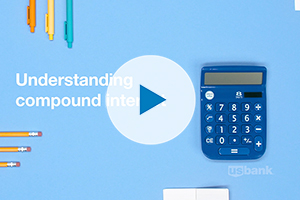
How compound interest works
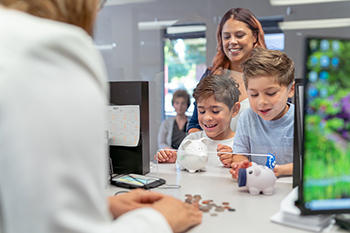
5 tips for parents opening a bank account for kids

5 financial goals for the new year

3 steps to prepare for a medical emergency

3 signs it’s time for your business to switch banks

5 ways to maximize your garage sale profits

How to choose the right business checking account

Mindset Matters: How to practice mindful spending

Uncover the cost: International trip

Uncover the cost: Wedding

Is a Health Savings Account missing from your retirement plan?

How to manage your finances when you're self-employed

What corporate treasurers need to know about Virtual Account Management

Does your side business need a separate bank account?

How to choose the right business savings account

Make your business legit

By the numbers: The gig economy

How to decide when to shop local and when to shop online

5 myths about emergency funds

How to save for a wedding

How I did it: Turned my side hustle into a full-time job
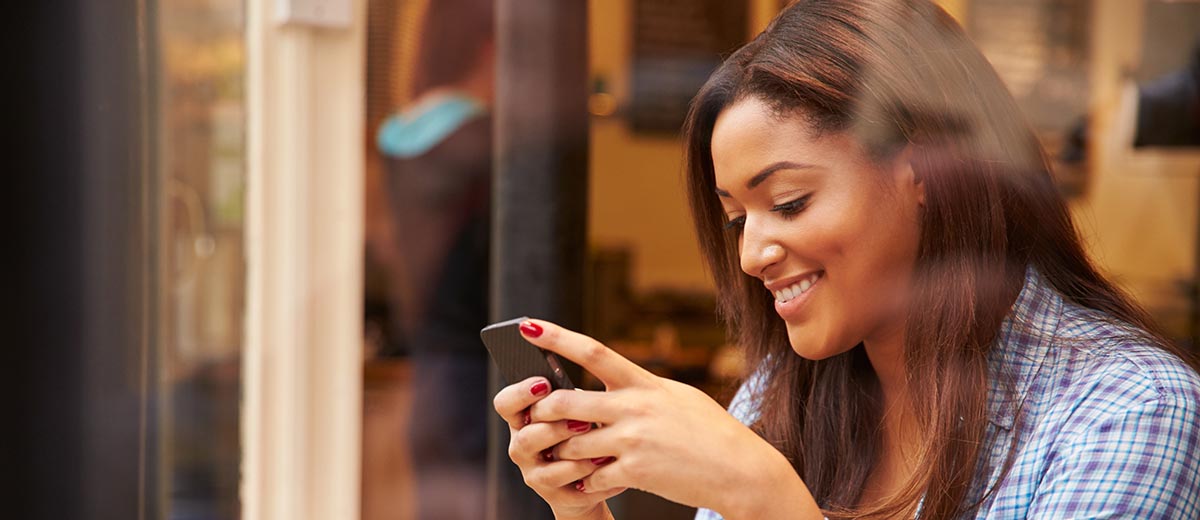
Stay on budget — and on the go — with a mobile banking app

5 things to consider when deciding to take an unplanned trip

Bank from home with these digital features

Key components of a financial plan

Don’t underestimate the importance of balancing your checking account

How to be prepared for tax season as a gig worker

6 questions students should ask about checking accounts

What you need to know as the executor of an estate

How to manage money in the military: A veteran weighs in

Beyond the mortgage: Other costs for homeowners

Saving for a down payment: Where should I keep my money?

Travel for less: Smart (not cheap) ways to spend less on your next trip

Steer clear of overdrafts to your checking account

U.S. Bank asks: Do you know what an overdraft is?

Tips for working in the gig economy

Which is better: Combining bank accounts before marriage — or after?

Tips to overcome three common savings hurdles

Money Moments: 8 dos and don’ts for saving money in your 30s

A passion for fashion: How this student works the gig economy

Helpful tips for safe and smart charitable giving

Growing your savings by going on a ‘money hunt’

Tips to raise financially healthy kids at every age

Is it time to get a shared bank account with your partner?

It's possible: 7 tips for breaking the spending cycle
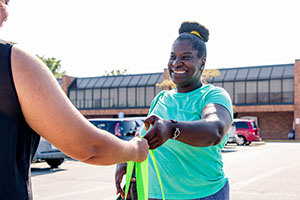
Earning in the gig economy: Gladys shares her story

Here’s how to create a budget for yourself

Common unexpected expenses and three ways to pay for them

Checking and savings smarts: Make your accounts work harder for you

Are savings bonds still a thing?

Allowance basics for parents and kids

9 simple ways to save

Do you and your fiancé have compatible financial goals?

What military service taught me about money management

Is online banking safe?

8 tips and tricks for creating and remembering your PIN

Recognize. React. Report. Caregivers can help protect against financial exploitation

Recognize. React. Report. Don't fall victim to financial exploitation

How to save money in college: easy ways to spend less

Overdrafts happen: Steps to get you back on track

Adulting 101: How to make a budget plan

You can take these 18 budgeting tips straight to the bank

How I did it: Learned to budget as a single mom

Your 4-step guide to financial planning

What types of agency accounts are available for investors?

Should rising interest rates change your financial priorities?

Saving vs. investing: What's the difference?

What I learned from my mom about money

6 ways to spring clean your finances and save money year-round

How to cut mindless spending: real tips from real people

What financial advice would you give your younger self?

Practical money tips we've learned from our dads

What’s in your emergency fund?

Certificates of deposit: How they work to grow your money
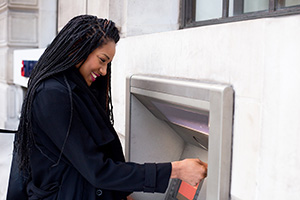
Dear Money Mentor: How do I pick a savings or checking account?

Money management guide to financial independence

Personal finance for teens can empower your child

5 reasons why couples may have separate bank accounts

How having savings gives you peace of mind

First-timer’s guide to savings account alternatives

Does your savings plan match your lifestyle?

3 tips for saving money easily

Myths vs. facts about savings account interest rates

Booming in the gig economy: A new chapter leveraging 45 years of experience

Healthcare costs in retirement: Are you prepared?

Webinar: 5 myths about emergency funds

